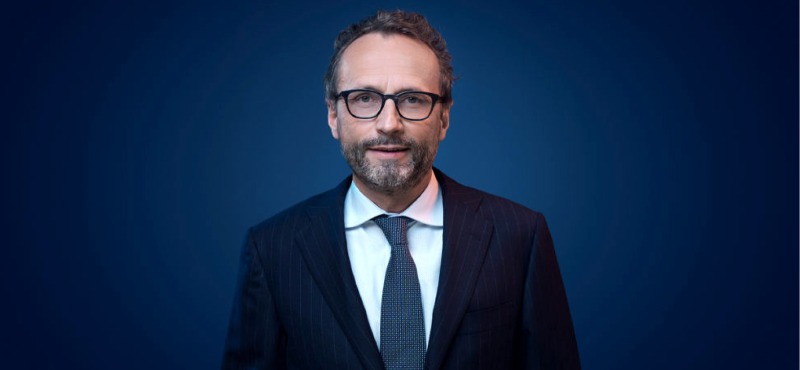LegalTutorial: This interview was conducted as part of the 2020 Edition of The Best Lawyers in Switzerland “Law Firm of the Year” award recognitions. Our partner Handelsblatt, also published these awards on June 27, 2019, online and in print in their June 2019 edition.
More than a decade later, the scars of the global financial crisis continue to disfigure and complicate the balance sheets of some of the world’s most prominent financial institutions. Helping them heal—and guard against future injury—is Zurich-based Niederer Kraft Frey, recently named Banking and Finance “Law Firm of the Year” in Switzerland. NKF partner Sandro Abegglen—whose bailiwick encompasses banking, finance, regulatory, investigations, enforcement, white-collar crime, and investment funds—sat down with Best Lawyers CEO Phillip Greer to discuss tightened regulations, corruption risks, and why it pays to be wary of sovereign-wealth funds.
What does it mean for you and the firm to be named Banking and Finance Law Firm of the Year by your peers?
Sandro Abegglen: We’re very honored. We believe that for banking, finance, and financial-services regulatory, we’re second to none in Switzerland. But of course, it’s a daily fight to keep that position, and rewards such as this help make that clear to our clients.
There has been a great deal of focus on banking and financial institutions in the wake of various crises over the decades. How have regulations affected your clients, and how confident are they should another crisis arise?
They have massively affected the big financial institutions and banks in Switzerland—UBS, Credit Suisse, CRH, Cantonal Bank, and Raiffeisen Group, which were considered too big to fail. As a consequence of that categorization, these banks are still working to increase their capital buffers and implement substantial measures to ensure that in case of a problem, the core element could continue to work and that the other pieces could be broken away.
That’s a super-complex task, of course, for Credit Suisse and UBS. The vast majority of their operations and capital and risks are abroad. In London or in New York, where these operations are, regulators might have a different view. In addition, the increase in capital requirements has brought those banks’ share prices under pressure. I’m not a financial analyst, but it’s clear that some shareholders wonder whether there is still enough for them on the plate.
The second area is more low-level but very hot at the moment. As a consequence of the financial crisis, a large number of retail clients lost money. Point-of-sale-related financial services in Switzerland were put under scrutiny, and as a result, there’s a new law coming into force January 1, the Financial Services Act, which will introduce point-of-sale conduct duties that apply to any financial services provider in any area. I’m happy that my team and I advise UBS on the implementation of the Financial Services Act. UBS is the largest wealth manager in the world. [Consider] how much work that that involves. On the operative side, the IT side, it also costs a lot of money.
A third area: The increased attention paid to the problem that a number of European Union, United Kingdom, but unfortunately also Swiss banks, are often involved in catering banking services to clients involved in corruption. There are famous cases, like 1MDB, where even Goldman Sachs is involved. But all these scandals that involved money from corruption, some of that money was also poached in Switzerland with some private banks.
That has a substantial impact on the profitability of the business. Meaning that today, a bank is much more likely to turn away the client from Mexico or Argentina, not to speak of Venezuela or Azerbaijan—or clients from Russia or Saudi Arabia. Today you must have much faster doubt about the legality of the funds. Some of these clients, even if they are state funds—1MDB was a state fund—they’re bringing [the problem] to you.
Because the Swiss banks in the wealth-management area are so globally active, they have clients all over the world—including in countries I would not dare vacation with my kids. Like Venezuela: If you have a rich entrepreneur from Venezuela, the chance is that such a guy has to be involved a bit in corruption. Otherwise, you probably cannot be an entrepreneur in Venezuela. The chance is much bigger than when you cater to a dentist in London.
How do global trade wars, tariffs, and protectionism affect your clients? How do you best prepare them for certain outside influences?
Inbound cross-border services provided in the European Union are very protective, politically driven. The European Union tries to shut down the market with regulatory measures against foreign financial institutions. Providing services into those countries from outside the European Union is also a big topic for U.K. banks. We can tell them to lobby with the Swiss government, that the Swiss government tries to obtain better conditions. But their leverage in Switzerland is, of course, limited.
On the other hand, in cooperation with international law firms in Germany, etc., we tell them what they have to do to be able to provide cross-border services under this stricter practice. The fact of that ever-increasing regulatory regime means it’s only possible to cater to clients who are taxed. The rich German entrepreneur who should now bring his taxed money to a Swiss bank: Does the guy still come when he has to do it with taxed money?
Maybe it has the effect that you lose some market share in these markets. The bigger banks can make up for that by setting up operations locally in Germany. But for the smaller ones, that’s not an option. Where do the smaller ones turn? They go to a market where that regulation is not that strict. It’s exaggerated, but then you go to Latin America, you go to Southeast Asia, you go to Africa, you go to some Arab countries. But these are all markets with substantially increased risks from corruption.
Are there any projects or upcoming work you’re particularly excited about?
Very exciting for me is that we appealed against the decree of the Swiss regulator who wanted to disgorge profits a bank made with illegal transactions. Simplified, FINMA [the Swiss Financial Market supervisory body] took the view that the Swiss bank had to pay substantial expenses and penalties to the [Federal Customs Administration]. That means the expenses could not be deducted from the disgorged profits. We’re taking that case to the Swiss Supreme Court, and there are signs that we could win.
When I look at what’s commercially exciting, it’s licensing mandates. We have a big mandate for Bank of New York Mellon—they’re setting up a much bigger presence in Switzerland, and we’re accompanying them, obtaining the relevant license from FINMA. This is exciting because on the U.S. $10 bill is [Alexander Hamilton], the founder of Bank of New York Mellon, and he also happens to be a founder of the United States. I’m proud that we can [cater to] such international institutions.
This interview has been edited for length and clarity.
Reference: Too Good to Fail
3,369 total views, 1 views today

